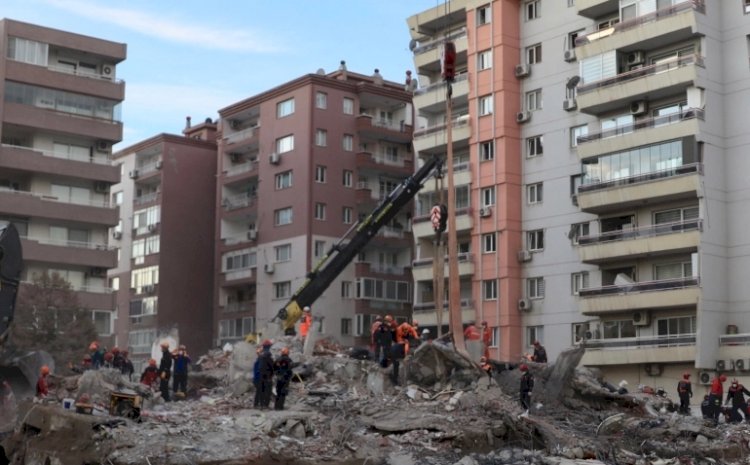Turkey: Earthquake Toll Rises To 116 As Rescuers Conclude Searches

The death toll in last week’s Aegean Sea earthquake has risen to 116 as rescuers in the Turkish resort city of Izmir finished searching buildings that collapsed in the temblor. As of Wednesday, all but two those killed were in Izmir, Turkey’s third largest city. Two teenagers died on the Greek island of Samos, which lies south of the epicentre of Friday’s powerful earthquake, which registered 7.0 magnitude according to the United
States Geological Survey. Mehmet Gulluoglu, head of Turkey’s Disaster and Emergency Management Presidency, said search and rescue operations had been completed at 17 buildings that fell in Izmir. The rescue operation has been going full tilt since Friday, as rescuers pulled 107 survivors from the rubble, including some young children whose survival prompted emotional outpourings from observers and emergency
workers alike. Of the 1,035 people injured in the quake, 137 remained hospitalised on Wednesday, the Turkish agency said, and more than 4,600 tents and 17,000 beds were being used for temporary shelter. This was the deadliest quake to hit Turkey in nearly a decade. Following a cabinet meeting on Tuesday evening, Turkish President Recep Tayyip Erdogan pledged not to give up until the final person was recovered. Rescuers’
spirits were raised on Tuesday when they pulled out a 3 year old girl from the wreckage of her family home, 91 hours after the quake. The tremors were felt across western Turkey, including in Istanbul, as well as in the Greek capital of Athens. Some 1,700 aftershocks followed, 45 of which were greater than 4.0 magnitude. In Izmir, the quake reduced entire buildings to rubble or saw floors pancake in on themselves. Authorities have
detained nine people, including contractors, for questioning over the collapse of six of the buildings. Turkey has a mix of older and new buildings, often built cheap and sometimes illegally, making them incapable of withstanding earthquakes well. Regulations have been tightened to strengthen or demolish older buildings, and urban renewal is under way in several
Turkish cities. But experts say it is not happening fast enough. The country sits on top of two major fault lines and earthquakes are frequent. More than 500 people were killed in a 2011 quake in the eastern city of Van, while another in January this year killed 41 people in the eastern province of Elazig. In 1999, two powerful quakes killed 18,000 people in northwestern Turkey.
